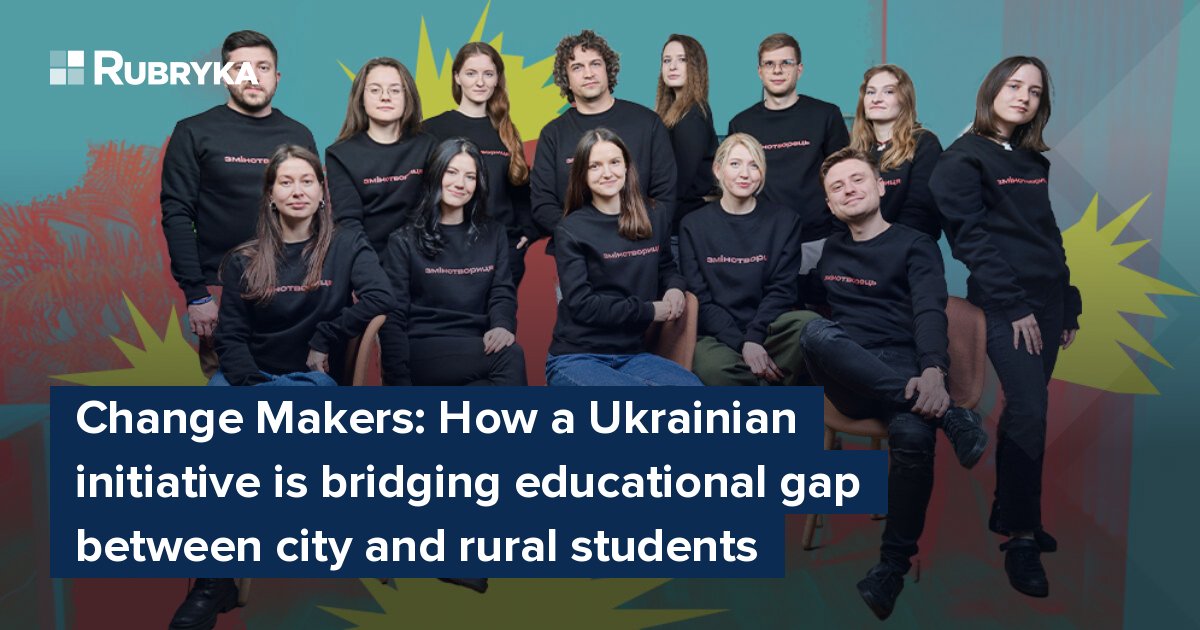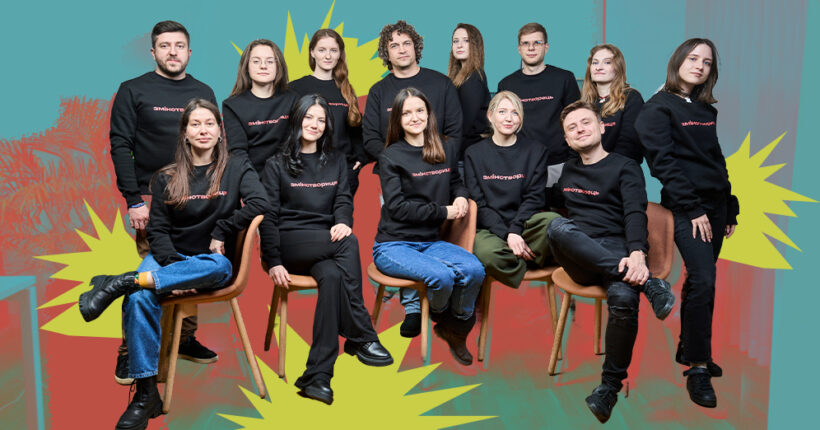
What's the problem?
In 2022, the Program for International Student Assessment (PISA) testing in Ukraine showed a significant gap between the knowledge levels of students from urban and rural areas. Overall, children in rural schools need more than 4.5 additional years of learning to catch up with the knowledge level of children in urban schools.
"I was a diligent student, one of the best in my class. However, I was quite weak in all technical subjects — mathematics, physics, computer science, etc.," says Ivan, a Ukrainian student from a village in the east-central Dnipropetrovsk region. "When I started studying programming in [career] college, I realized that computers and I were not a good match. I also lacked creative development, as there were almost no clubs or similar activities [in my small town]. The photo and film studio existed only in name."
Ivan spent his school years in his village, but after finishing ninth grade, he entered a vocational school in Dnipro, the region's capital city. He often struggled in classes while his classmates quickly solved complex problems and tasks.
Teachers (and parents) in smaller communities often lack the resources to provide children with a personalized approach and modern knowledge. Full-scale Russian aggression since 2022 has made the situation even worse. Without adult role models and access to the latest information, children adopt the examples they see around them in school or their community, not considering other opportunities or not knowing about them at all.
What's the solution?
"The problem of insufficient attention to the potential hidden in small towns in Ukraine has been on my mind for about eight years," Vladyslav Hreziev, founder of the recruitment agency Lobby X and co-founder of the ZMINOTVORTSI national education system for teenagers, tells Rubryka. "Even [eight years ago], employers began to realize that additional educational opportunities or any investments in youth result in more capable people in the labor market."

Vladyslav Hreziev. Photo: ZMINOTVORTSI
In 2020, Vlasdyslav and his friends took matters into their own hands to make a change for children from smaller communities by launching an educational project called "ZMINOTVORTSI," which translates to English as "Change Makers." The initiative was designed to teach schoolchildren from small towns and villages about the modern world and the opportunities available to them.
Due to the COVID-19 pandemic, the project had to be postponed for several years before it was revived in 2022 with new resources and financial support from the European Union through the European Endowment for Democracy (EED). Natalia Klochun, a national consultant for the European nonprofit, says:
"Thanks to the EU's support through the EED, the project team successfully launched an educational program for teenagers in 21 regions of Ukraine. The 12-course curriculum focuses on developing various competencies necessary for youth in the modern world, including basic knowledge about democracy and civil society."
The ZMINOTVORTSI project is now a program for teenagers aged 14 and up. It comprises 12 online courses covering essential areas such as relationships, business, society, health, government and politics, art, environment, and military affairs.
Each course aims to give teenagers a basic but comprehensive understanding of the world. According to the founders, this knowledge will help students make more informed and conscious life choices, guiding their future.
How does it work?
How it all started
Back in 2020, project co-founder Kateryna Mykhalko traveled to the eastern Donetsk region to lecture on entrepreneurship for teenagers. During her visit, she became deeply concerned about the inequality of educational opportunities in small towns and villages across Ukraine. This experience shaped the vision for the future project, initially focusing on teaching teenagers about the creative economy. Kateryna discovered that the children lacked the knowledge and information to understand the creative economy and how the business world functions.
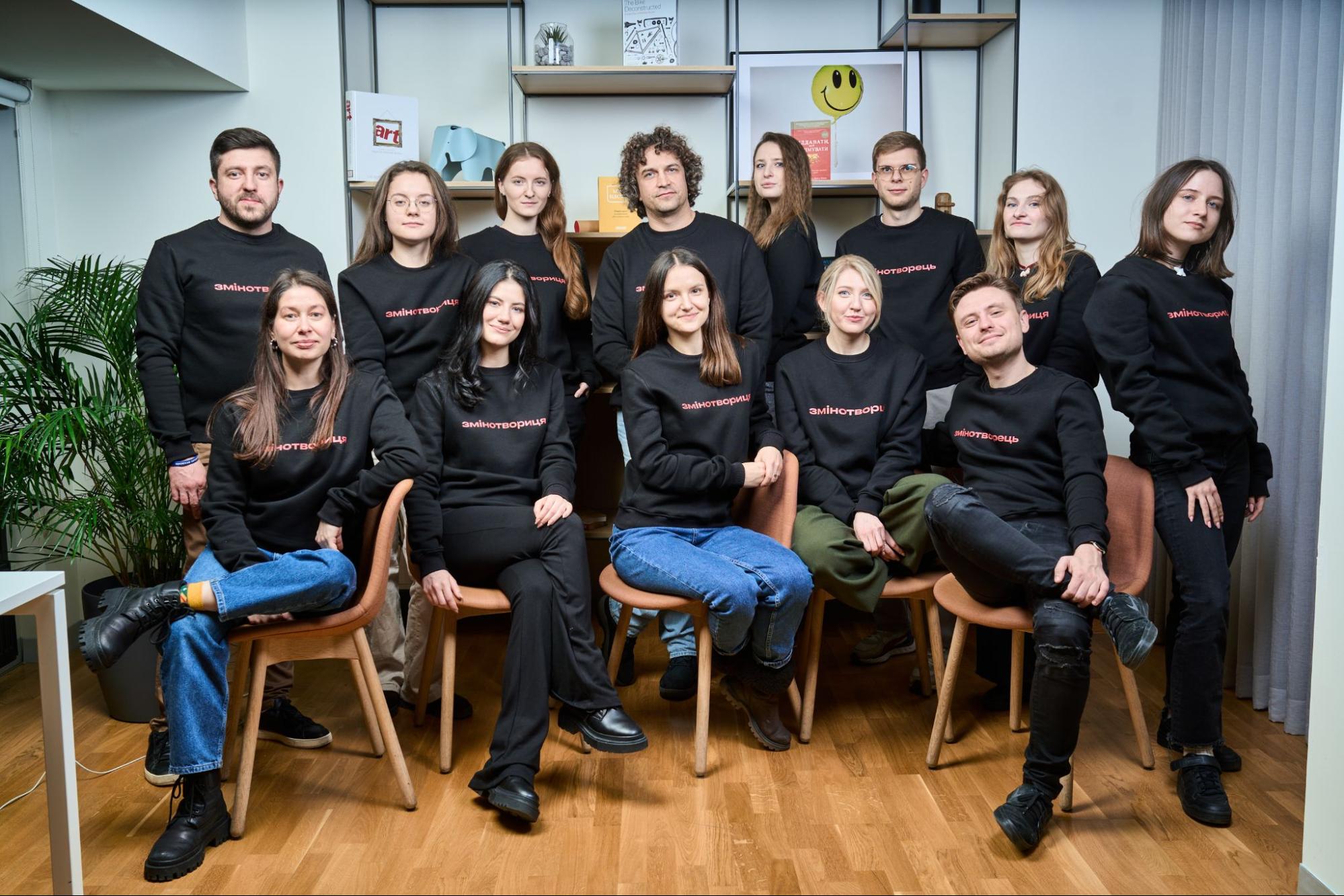
The initiative's team. Photo: ZMINOTVORTSI
"Kateryna realized that some teenagers don't know the basics of what they can do in today's world. They don't know where to find useful information," Vladyslav Hreziev recalls. This realization led to the founding of the program and the first attempts at fundraising, which unfortunately couldn't proceed due to the pandemic.
It seemed the story would end there, especially with the full-scale Russian-Ukrainian war in 2022 likely to derail all plans. However, the idea proved to be stronger than the circumstances.
In September 2022, the European Endowment for Democracy (EED) reached out to Vladyslav, offering funding for a long-term project that would continue even after the war.
"At first, I declined. I said we needed to focus on winning and expanding military recruitment, and we couldn't think about anything else, but [EED] convinced me, and we pulled this concept out of the drawer," says the co-founder. The financial support allowed them to revive the project, hire a team, and start working.
The first-course launch
The team faced many challenges: recruiting people, developing the course program, and conducting offline recruitment of students. They traveled to community schools, held sessions with students, and worked on the project's information campaign. Currently, the founders collaborate with influencers to attract teenagers to the program.
Vladyslav says that live meetings are beneficial as they engage children the most and immediately show them the learning approach. However, in the future, the team plans to conduct nationwide marketing.
The first pilot course was launched in October 2023 to test, adapt, and adjust. The team needed to see if the proposed methods would work, how children would perceive them, and whether they would participate or ignore them. During the development, many other issues were tested.
For the trial launch, ZMINOTVORTSI initially selected seven regions in central Ukraine where education had not yet moved online. When the team saw that the project's key instruments were working, they involved other areas. As of June 2024, students from 21 regions are participating in the initiative. The goal is to cover all regions of Ukraine.
"It's important that the project focuses on teenagers in small communities, where access to quality education may be lower compared to big cities, especially during the war," says EED's Natalia Klochun.
To participate in the program, educators (school administration or teachers) who want to implement the courses in their school need to write to the project's social media or fill out a form to involve their high school students in the program. Teenagers who want to take the course independently need to write to the project's Instagram page. Although the project focuses on teenagers from small towns, everyone is allowed to take the classes.

An intensive course for teens. Photo: ZMINOTVORTSI
All courses can be completed in about 11 months, with two weekly online sessions. The initiative plans offline visits to communities through camps and intensive classes, where students gather for activities to meet new people, make friends, and find like-minded people.
The team employs various metrics, including knowledge assessments, to measure the effectiveness of the courses. Students take tests on the subject matter at the beginning and end of each course. During recruitment, teenagers complete surveys about their beliefs, biases, and values, which are repeated at the end of the course, to explore how their worldview has changed.
School education is about the society of the future
"When we visit schools, we make time to talk with educators and discuss their challenges and needs," says Vladyslav, the initiative's co-founder. "Unfortunately, due to the meager salaries of school principals, who are responsible for hundreds of children and millions worth of property, their initial motivation to enter the school sector and build the society of the future has long been eroded."
However, Vladyslav asserts that despite this, "95% of them are heartfelt and dedicated people who work in schools out of a sense of calling."
"After my tenth conversation with school principals, I began to understand that these people deserve more praise because they hold the country together," the co-founder adds.
As part of the ZMINOTVORTSI project, the team collaborates with educators and Ukraine's Ministry of Education and Science to improve school education and build the society of the future. Vladyslav adds:
"Without quality school education, there will be no society, no Ukrainians, no state — it's fundamental."

An intensive course for teens. Photo: ZMINOTVORTSI
In June, the founders signed a memorandum of cooperation with the Ministry of Education. The project has already concluded over 50 collaboration agreements with schools across Ukraine.
"We have full support at the ideological level — the ministry helps spread information [about us] in schools and communities so we can involve more educational institutions," says Vladyslav. "We are now discussing other opportunities for collaboration. They share our mission and consider it important."
Leading experts from various fields are involved in the courses to improve the knowledge level of teenagers. For example, the "Relationships" course is taught only by psychologists with specific expertise in what they teach. The team calls this method a "conveyor belt of experience and values transfer from the older generation of progressive Ukrainians to the younger one." These experts are not just teachers but also role models for students. They demonstrate the values they teach students about through their examples.
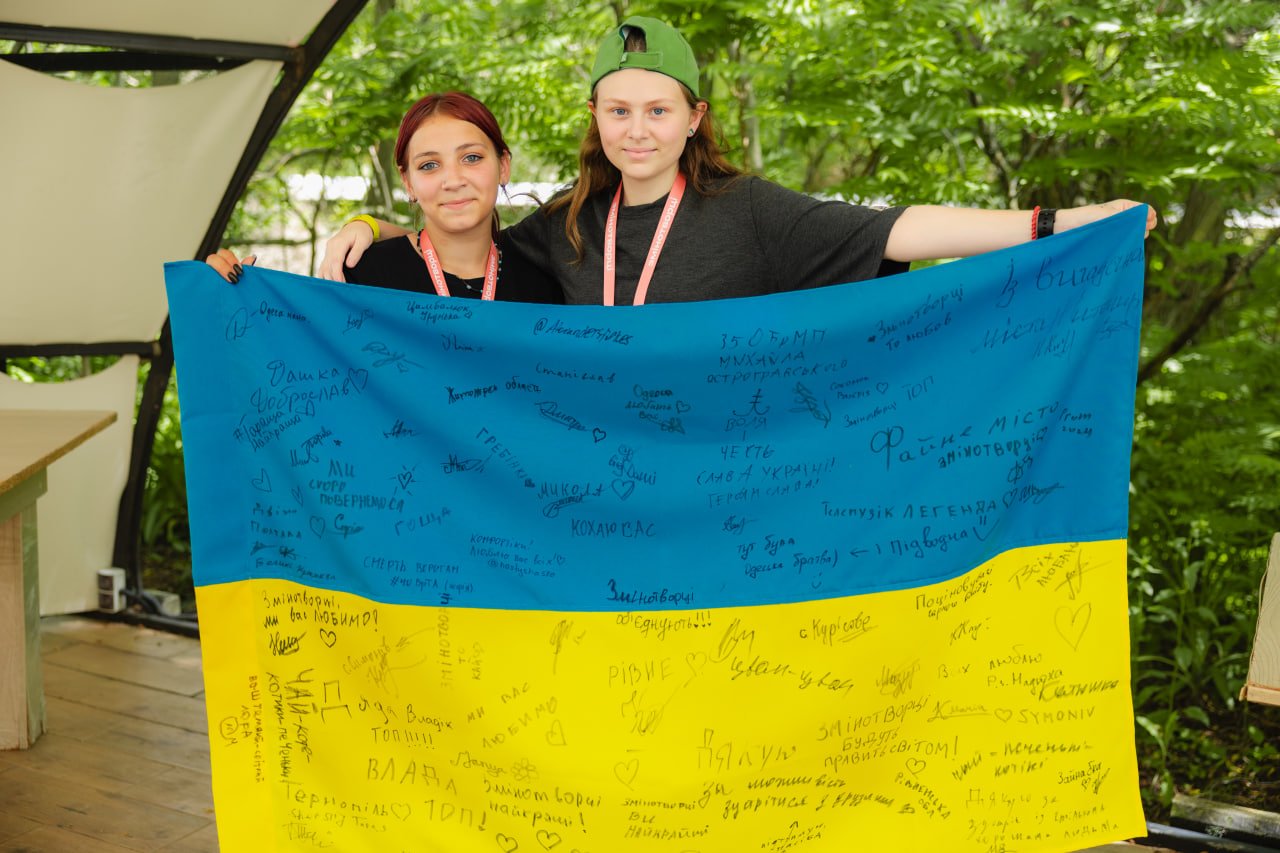
An intensive course for teens. Photo: ZMINOTVORTSI
The first instructors were chosen from the founders' network — specific people were invited. Now, the organization sees a flow of candidates responding to vacancies. They are tested in trial lessons.
"The instructor needs to show their capabilities; we evaluate them carefully. Being an excellent expert in your field is one thing, but being able to interact with teenagers, especially online, is a challenge," says co-founder Vladyslav. "We also have personal quality requirements: the person must be decent, value-driven, patriotic, and a conscious citizen of Ukraine."
Vladyslav adds that the team has big ambitions for scaling the project to 20,000 graduates annually, which, according to their estimates, requires 1,700 instructors.
The team wants to involve parents in learning in addition to courses for children. They already hold meetings for parents as part of the course but want to develop a separate project. "Because parents greatly influence their children, we need them to also contribute to their children's development," says the co-founder.
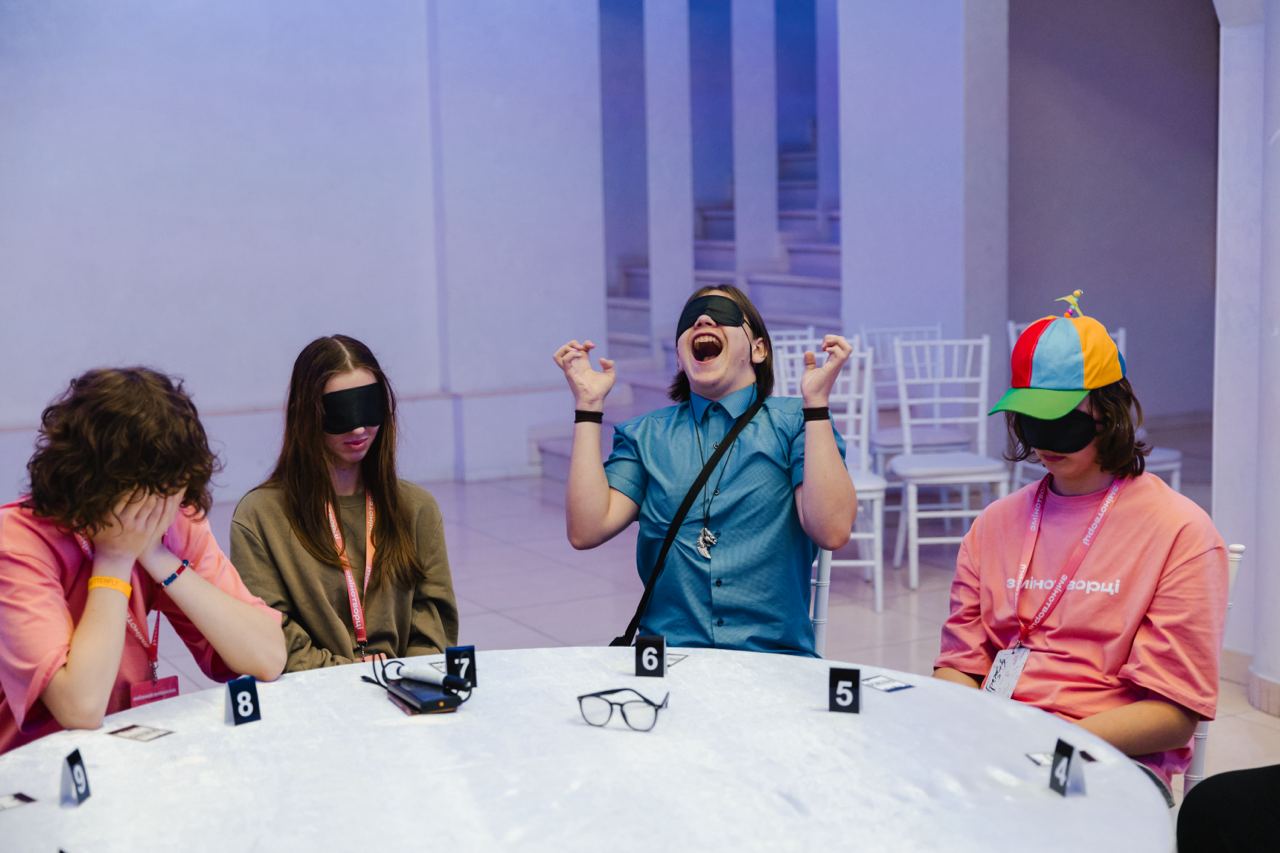
Games at intensive courses for teens. Photo: ZMINOTVORTSI
Daria Burik, the head of the communications department, shares her favorite story from the project:
"A girl from a large family joined our program and said it was like a breath of fresh air for her. She helps her parents a lot and has a complicated relationship with them. The first course she took was about relationships. She learned how to communicate with her parents during the crisis they were experiencing. She immediately practiced what she heard from the instructors and shared how beneficial it was for her. Later, she brought her boyfriend to the course, and he brought his friends, spreading the information further."
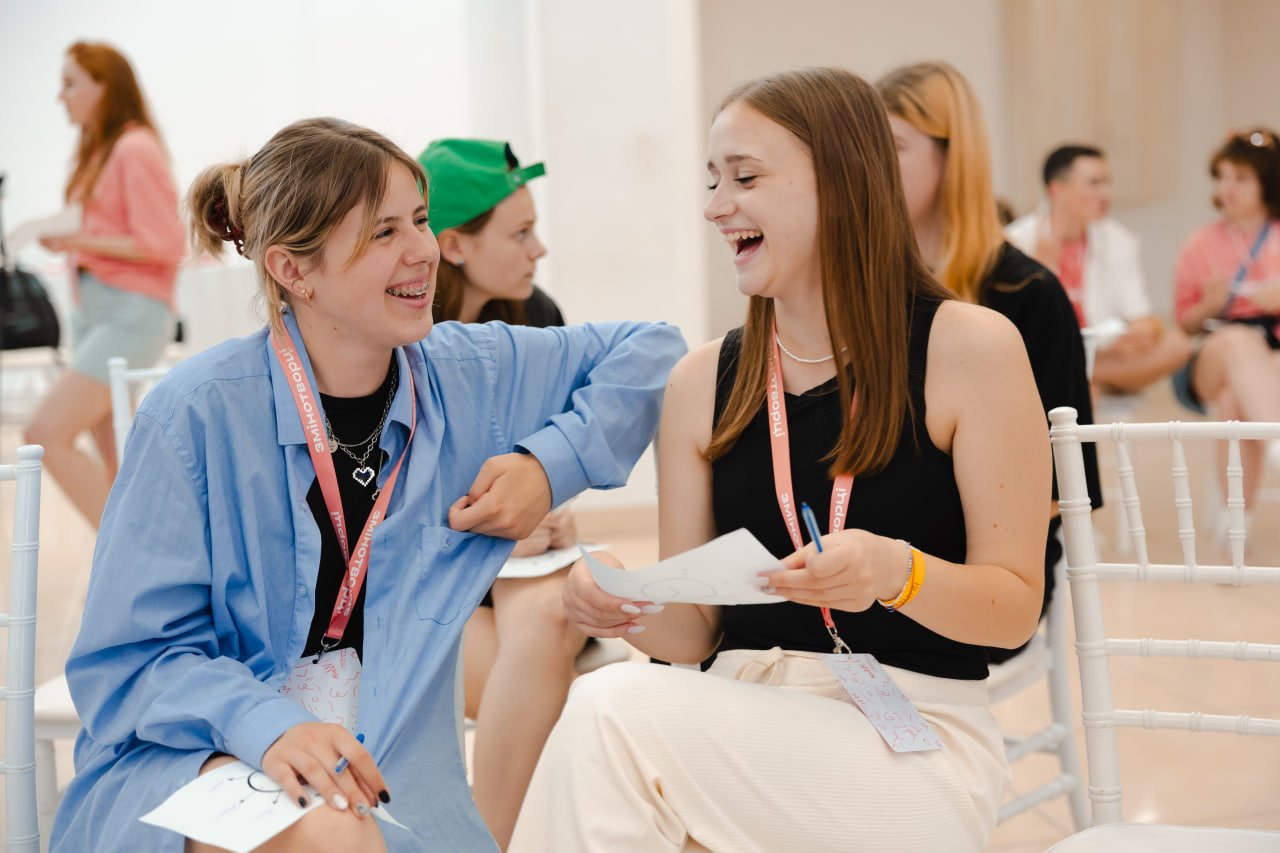
An intensive course for teens. Photo: ZMINOTVORTSI
Building a community is one of the project's priorities. ZMINOTVORTSI already has its first graduates — students who have completed more than eight courses. "We want to stay connected with them and interact for many years to come. We also want to provide them with as many additional opportunities as possible that could be valuable for teenagers," says Vladyslav.
One of the project's most popular courses, "Business," is set to be supplemented with a class for those who have consciously chosen the path of entrepreneurship. Depending on resources, the initiative wants to give mini-grants to children for community projects and conduct internships in local businesses, government institutions, non-governmental organizations, and more. They also want to create a program where graduates can independently organize and develop the community beyond the project.
The partners of ZMINOTVORTSI and the EU plan to continue supporting this project and similar initiatives aimed at positive societal changes and developing democracy as a community's foundation. "The EED will continue to support Ukrainian civil society in promoting democratic principles, including through youth engagement projects," says consultant Natalia Klochun.
Vladyslav believes that in times when the best and most patriotic people are dying because of the war, it is crucial to keep instilling the values of decency and democracy in young people and nurturing a new conscious generation of Ukrainians.
You can find out more about the European Union's support for civil society and independent media in Ukraine at the link.
The article was prepared with the support of the European Union as part of the "Together We Act. Together We Are Europe" communication campaign. Its content is the sole responsibility of the author and does not necessarily reflect the position of the European Union.


